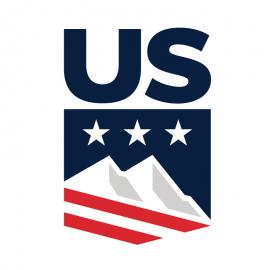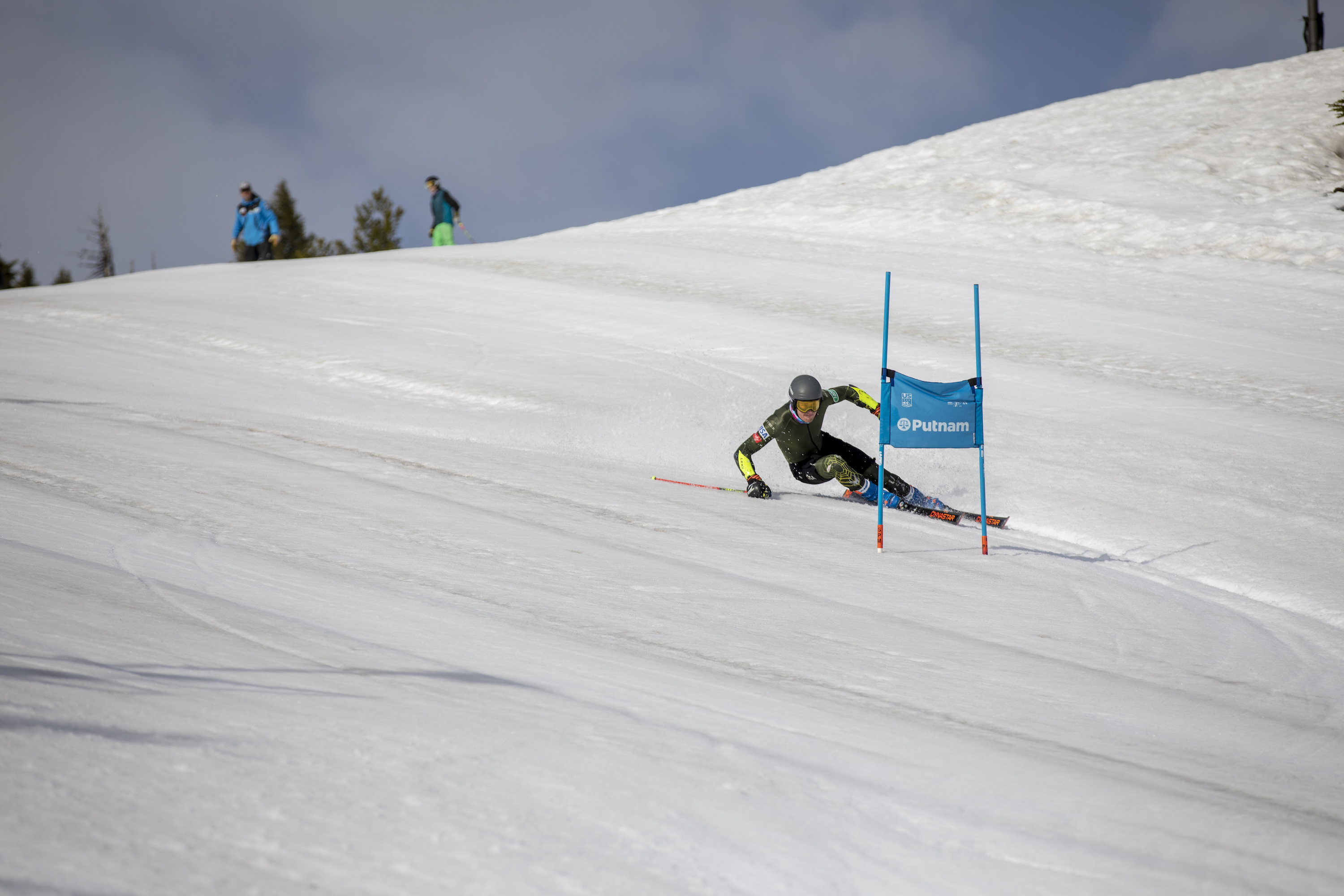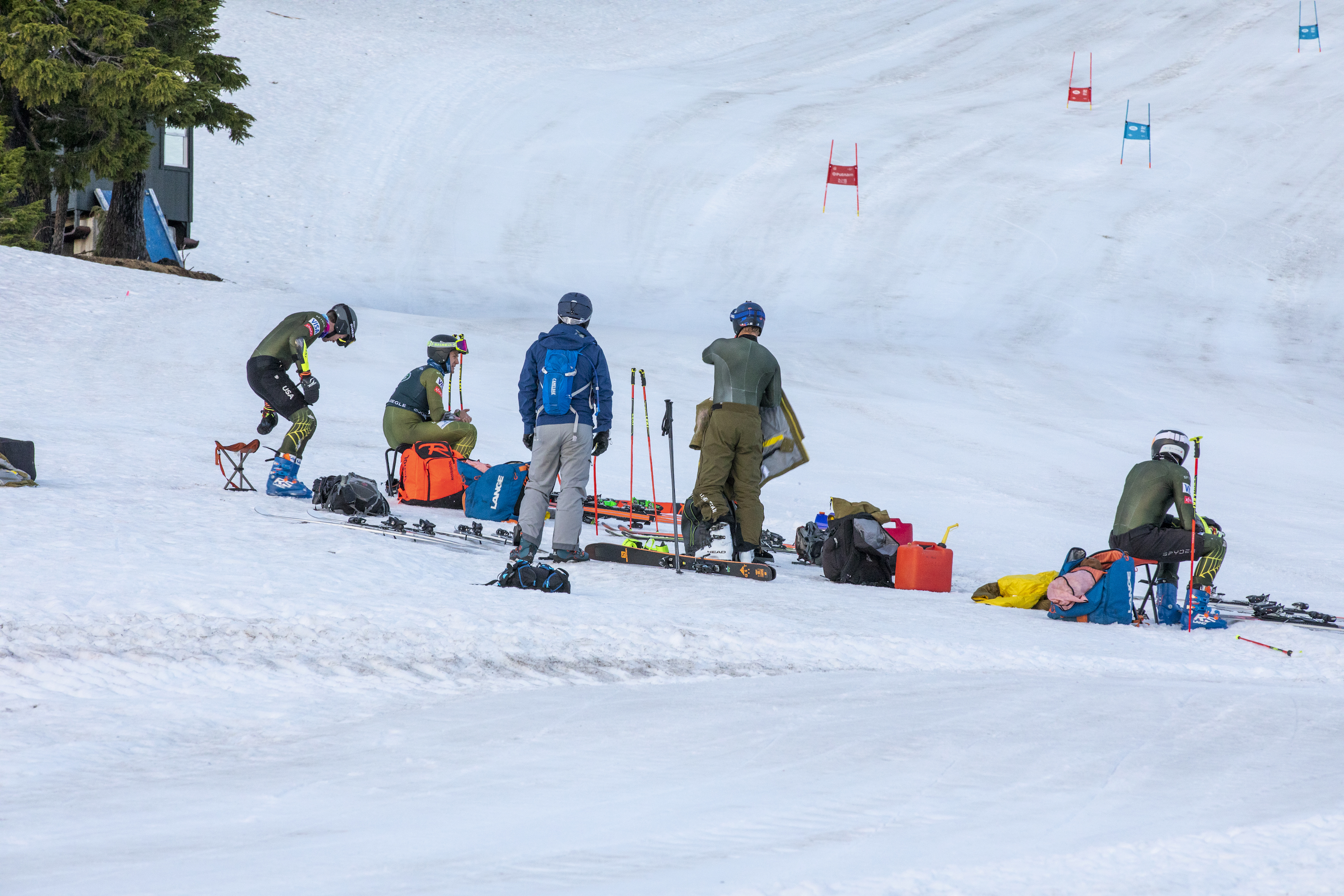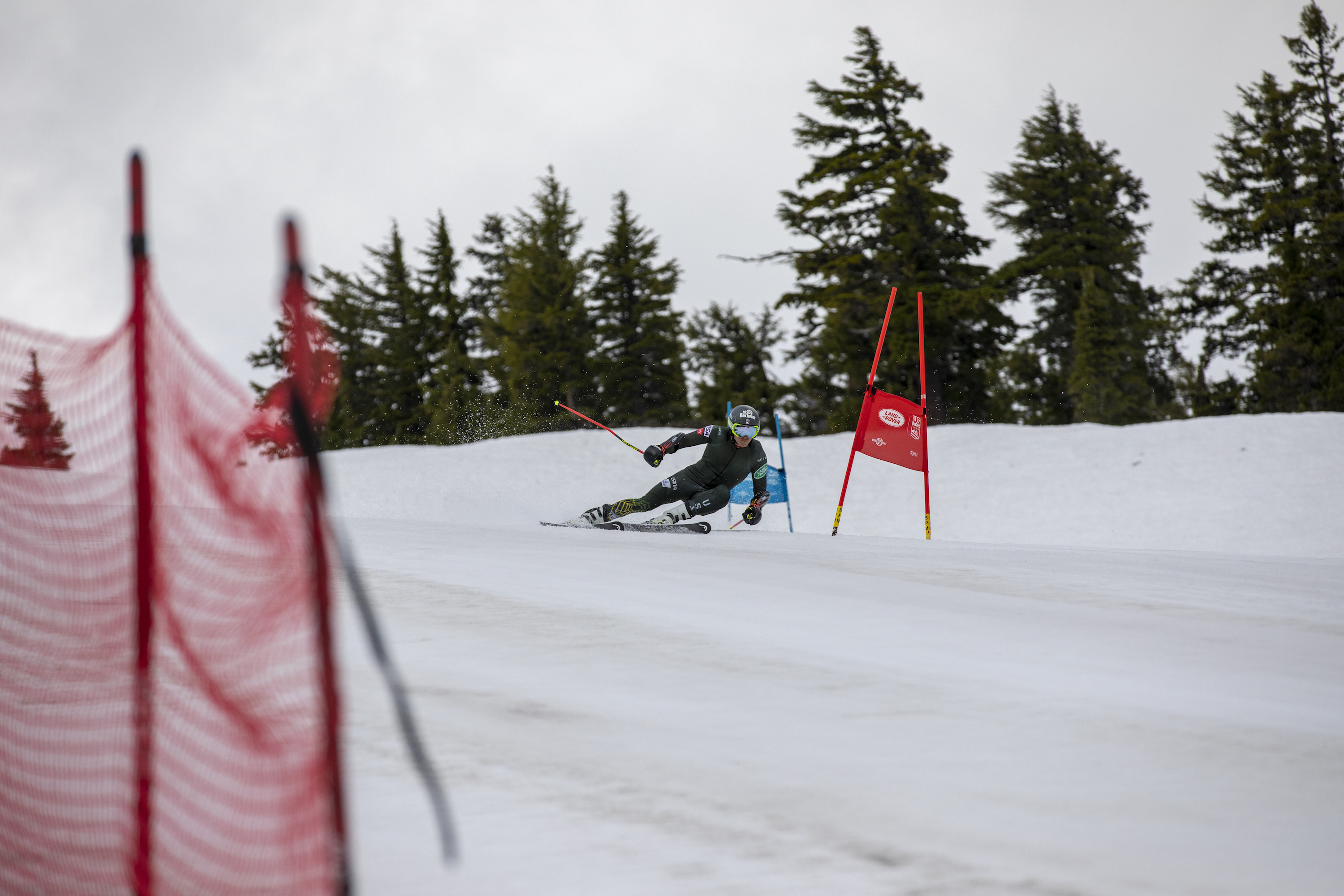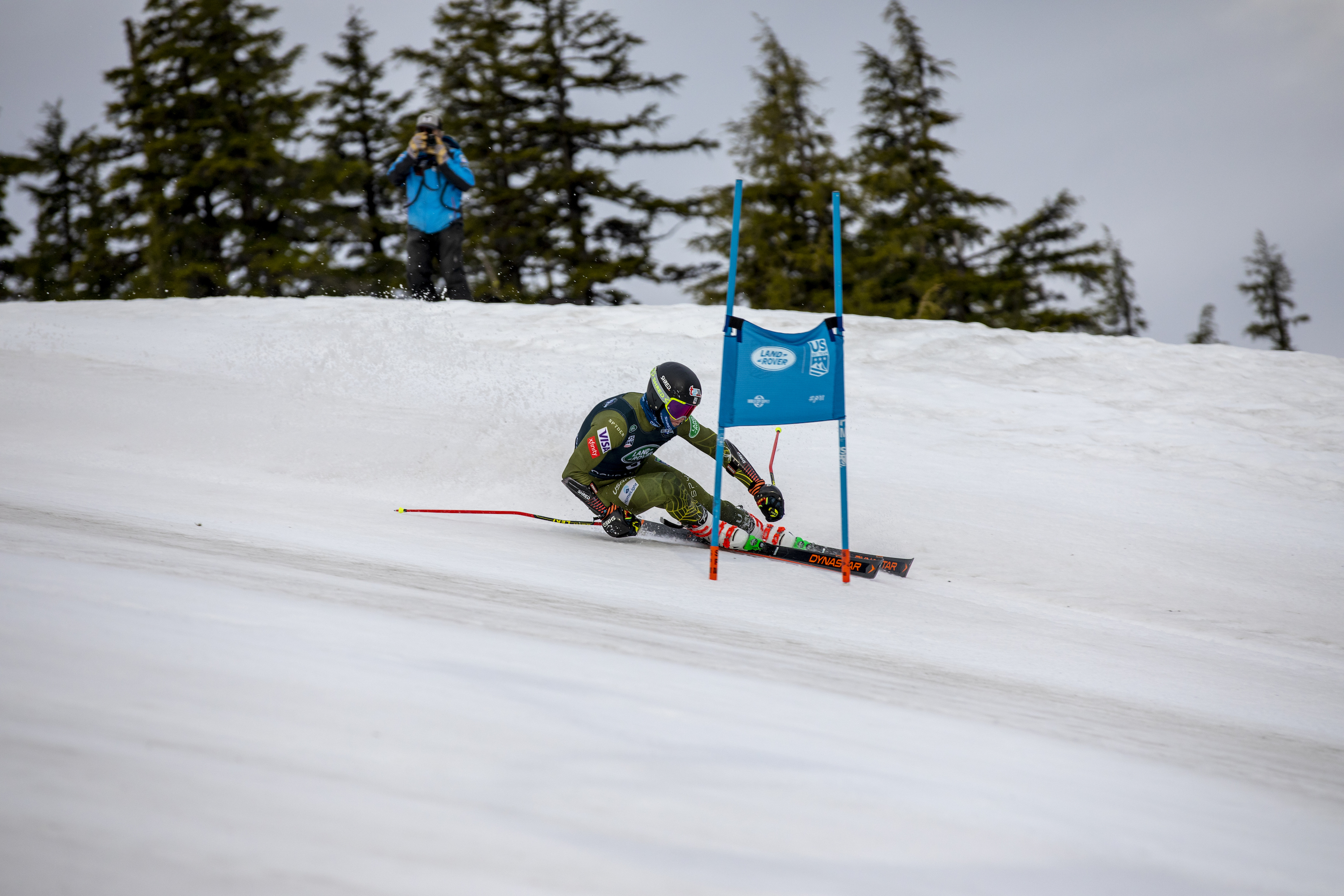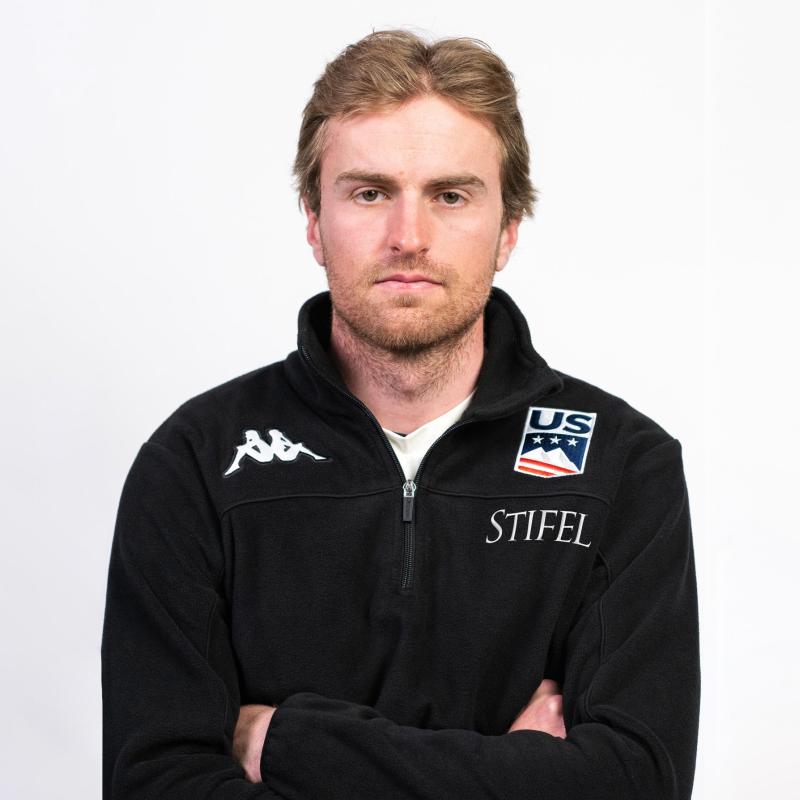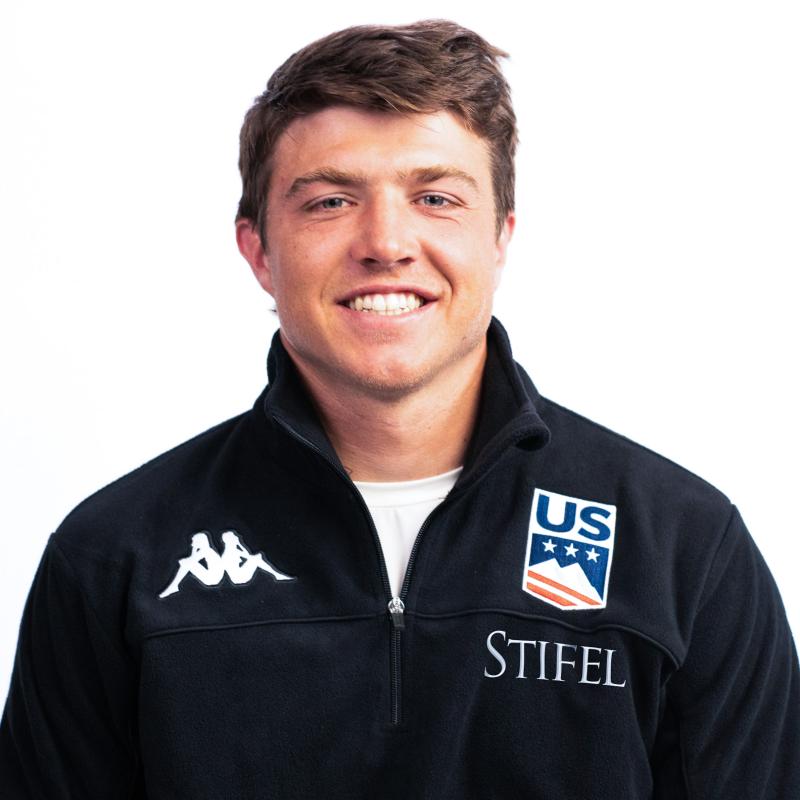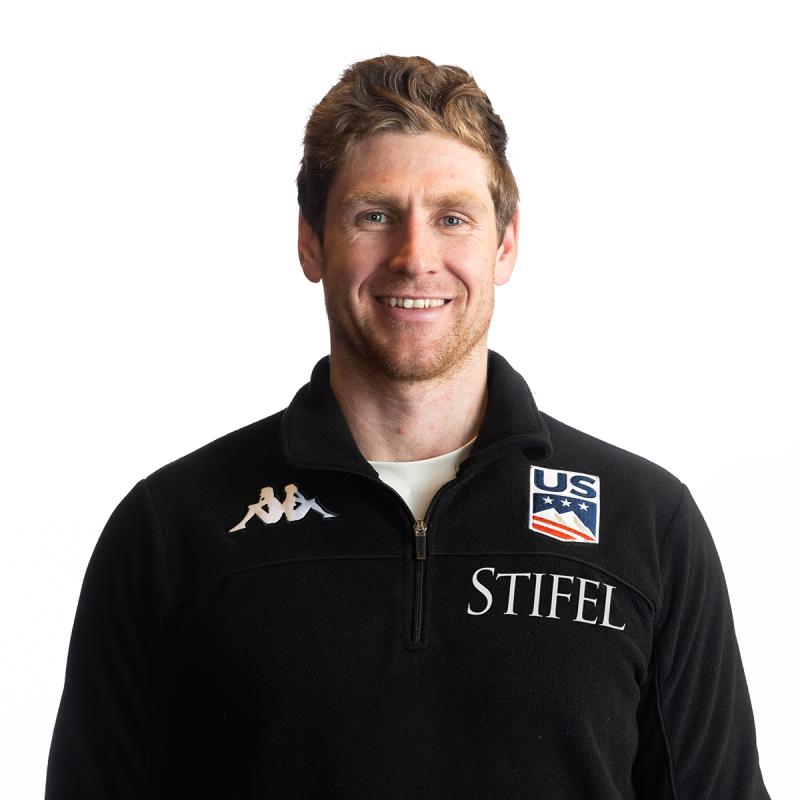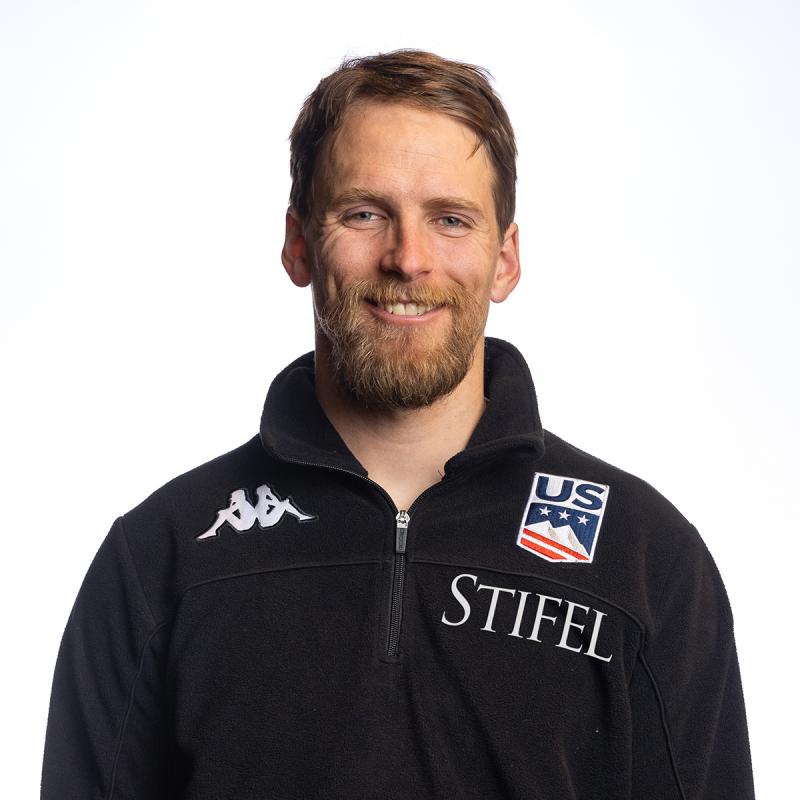Land Rover U.S. Alpine Ski Team Concludes Tech Camp at Mt. Bachelor
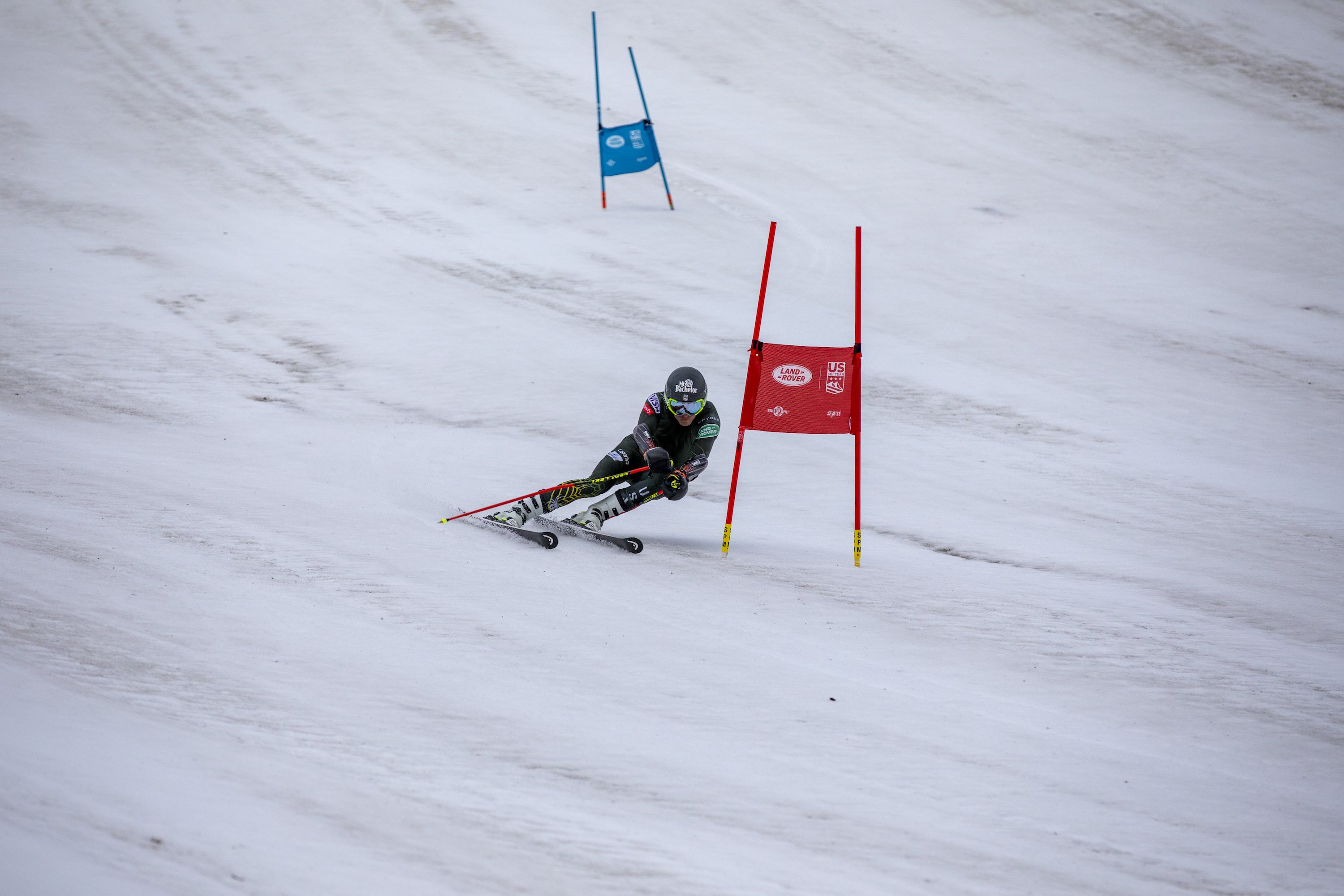
Starting with the Land Rover U.S. Alpine Ski Team in early June, U.S. Ski & Snowboard worked closely with several domestic ski areas, including Mt. Bachelor, to coordinate unique summer on-snow training camp opportunities for its national teams.
Members of the men’s World Cup technical team—led by Forest Carey, including two-time Olympic champion Ted Ligety, Olympians Tommy Ford and Ryan Cochran-Siegle, and World Junior medalists/up-and-comers Ben Ritchie and Luke Winters—hit the snow at Mt Bachelor, in Bend, Ore. for a 10-day giant slalom and slalom camp.
All sanctioned U.S. Ski & Snowboard training camps are subject to a rigorous set of criteria adhering to local, state, and federal public health orders as well as the United States Olympic and Paralympic Committee (USOPC) return to training guidelines to ensure the safety of its athletes and staff.
Working closely together with Mt. Bachelor Sports Education Foundation (MBSEF), Forest and assistant coaches Ian Garner, Ryan Wilson and Will Courtney conducted a successful 10-day camp, with early morning training and World Cup-like conditions. MBSEF Executive Director John Schiemer and his team, including Alpine Director Nils Eriksson, were psyched the guys were there and helped Forest and the team immensely. Each afternoon, athletes received physical therapy at Rebound’s West Clinic. Rebound is an official medical provider for the U.S Ski & Snowboard Team.
“The athletes were engaged, excited, motivated—it was a really nice environment. The local community was welcoming and really helpful,” Forest emphasized. “Brett Gingold, the doctor who was on the ground, made everything happen and provided a lot of local knowledge, and helped us feel safe.” Forest also mentioned how helpful the MBSEF crew helped, including driving snowmobiles while the athletes were lapping. “We were fortunate the mountain was closed, so we were training with snowmobiles,” said Forest. “There was very little demand for accommodation so we had spacious accommodations...it was a good way to kick off having camps. It worked out pretty smoothly.”
In total, the men skied for 10 days, with eight days of giant slalom training and two days of slalom training when the weather was less than perfect. “It’s a really nice trail—it’s like a 55-second GS, with really nice terrain,” Forest added. “They got about 60 runs in the camp. We also did two days of slalom when the weather wasn’t as good. Working on the normal stuff. It was nice to get out there this time of year for a little experimenting and try to get the pressure above the fall-line, and powerful turns. Each guy was able to try that out with their feelings and with input from each other. We salted pretty much every day, getting up there very early, so the snow was fine.”
With the salted snow, Oregon local (Gresham) Luke Winters, mentioned the conditions were much like many of the World Cups this past season. “The training and conditions at Bachelor were a bit northwest-wet and variable, but the salt worked and we were able to get some quality training on a great hill. As far as I'm concerned, the conditions were similar to most GS World Cups this year.” World Cups like Yuzawa-Naeba, Japan, Alta Badia, Italy, Garmisch, Germany, and Hinterstoder, Austria, all had that springlike, salted surface.
Ryan Cochran-Siegle, who just came off of the best season of his career on the World Cup, was relieved to get back on snow in some capacity with their small group. “The last time any of us was on snow in a serious training environment was back at the beginning of March when we were at the time preparing for Kranjska Gora [Slovenia],” Ryan said. “All of a sudden, our season ended like the flip of a switch and for a short moment, skiing was put on the back burner to return home safely and learn how to be a part of a new social-distancing world. To be back on snow again after everything we have all been through was a refreshing feeling. At the same time, it also felt a little like tiptoeing through your house in the middle of the night. It’s all familiar territory to be skiing again, but not everything is experienced in the same light right now. COVID precautions added to the detail we put in place with our training and housing environments, but eventually, it became close to normal over the course of a few days of getting used to.”
Bend, Ore. hometown boy Tommy was stoked to get back on snow at his home hill when it reopened at the end of May, saying that “Returning to snow to gates for the first time since early March was lovely. Didn't skip much of a beat. Skiing at Bachelor when it reopened at the end of May really helped get my ski feet back on.”
“Mt. Bachelor let us train on Thunderbird, the main run, that has a nice gradual break over with a consistent pitch that breaks over again just before a compression and trail turn that leads into an off-kilter false flat then gradually turns,” Tommy said. “It was a dream come true to train on that hill with my team! We had some early mornings and some salty days. I feel like we were all able to learn and improve our skills.”
Ryan was quick to mention they knew the privilege it was to be at Mt. Bachelor and they all took it seriously in order to get the most out of the opportunity. “We also had a great daily dialogue and communication among athletes and staff that helped offer different perspectives between us from which we learned extensively. Fortunately, we had close to perfect terrain for our needs thanks to Mt. Bachelor who gave us full reign of Thunderbird while there. Easily the best trail I’ve ever skied at Mt. Bachelor, as it’s still the only trail I’ve ever skied at Mt. Bachelor,” he added.
Though Luke admits the break in the spring due to COVID-19 didn’t feel as long as it was, he says it was good to get back on snow and is thankful for the solid training in his home state of Oregon. “Being an Oregonian, it was nice for Bachelor to open up and keep me as local as possible,” said Luke. “Training on the same hill I spent a lot of time on as a kid brought back some fun memories and it was good to do it with fellow U.S. Team athletes this time around. Hopefully, we can make it an annual trip. Thanks to Mt. Bachelor and MBSEF for all the help.”
Luke’s focus during the camp was on giant slalom. “This next season I want to ski as much GS as I can and work on being a two event tech skier in the coming years,” he commented. “Taking my slalom fundamentals I have been focusing on in the last year and transferring what I can to GS.” Tommy’s focus was “on activating and utilizing my inside ski while also doing all the other stuff well too. The other stuff being, staying out over the ski and rotated out with my shoulders as the forces build. Strong move down the hill at the top of the turn. In slalom, working to use the skis like a trampoline rather than skis. That was interesting.”
As for Ryan, his focus for the camp was on discovering the right cues to get him back where he was at the beginning of March. “For me, this included driving over the front of the ski at the top of the turn, disciplined level upper body through the apex with strong lateral outside half core engagement, and sticking with my bottom half to finish the turn, upper body following my lower body,” he said.
All of the athletes shared similar sentiments of gratitude for the training opportunity, and Tommy commented, “A big thank you to Mt. Bachelor, MBSEF, our dedicated snowmobile drivers, Rebound PT, Boss Sports Performance, my parents, and the U.S. Ski Team. It really takes a village.” Ryan added, “Thank you to all of the supporters, volunteers, staff, medical team, teammates, Rebound Therapy, Mt. Bachelor, city of Bend, and U.S. Ski and Snowboard for making such a great first camp possible! There was a crazy amount of hard work and jumping over hurdles that went into making it happen and we are all just so incredibly thankful and appreciative that it did!”
Finally, the time together in Mt. Bachelor in what has been a tumultuous time in the world, as protests against social injustice abounded across the country, gave the team time to have thoughtful and serious discussions about what was going on in the world. “As a final note,” added Tommy, “although we were back on snow and stoked for some sense of normalcy, we recognized, as a group, that ‘normal’ is changing and we were having daily discussions about Black Lives Matter, policing, and legislation. I've talked about continuity and consistency in my skiing for a while and the same applies to social change. Let's put the work in. Vote.”
Though much remains unknown with regards to future training opportunities in the COVID-19 landscape, the men’s tech team plans to travel to Mt. Hood, Ore. in July for a camp at U.S. Ski & Snowboard's official training site Timberline Lodge and Ski Area.
U.S. Ski & Snowboard sanctioned training camp attendance is optional. U.S. Ski & Snowboard athletes and staff should not feel pressure to travel to train. All sanctioned training camp policies and protocols are subject to change based on local, state, and federal public health orders, updated guidance from the USOPC, or updated U.S. Ski & Snowboard policies.
